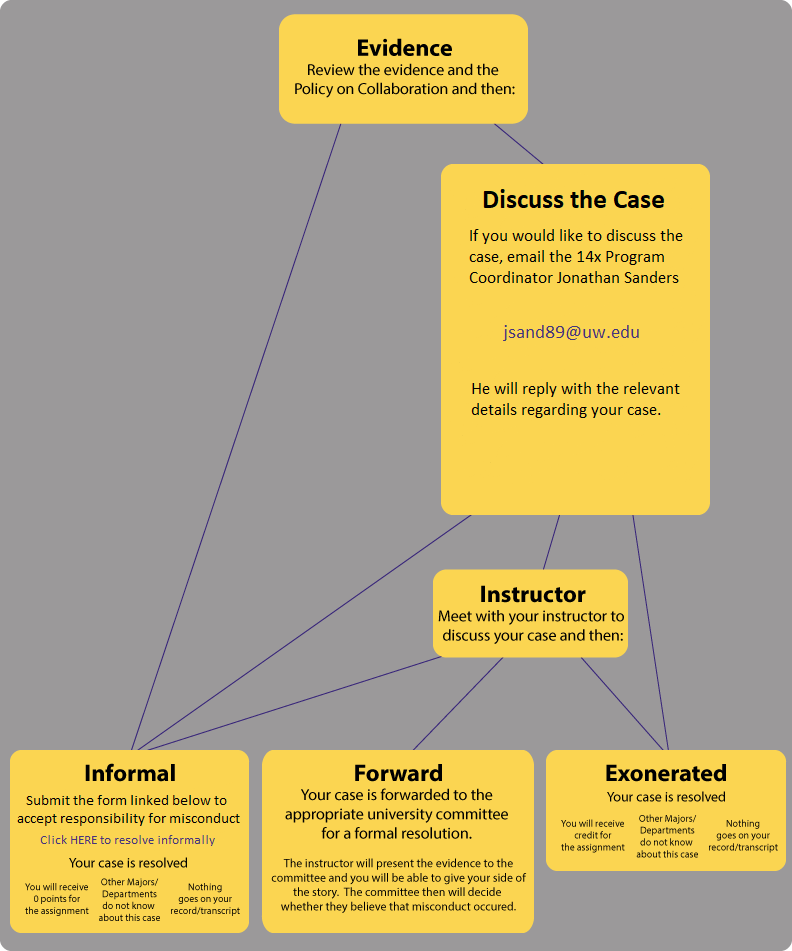CSE 143: Computer Programming II, Autumn 2023
Instructor: Stuart Reges (reges@cs.washington.edu), CSE2 305: Tue 12:30-2:30
We believe that academic misconduct occurred with your assignment.
Please view the chart below that explains how you can resolve your case.

You should not hesitate to discuss the case or to elevate the case to meet with the Instructor. Notice that you never lose your option to resolve the case informally by accepting a zero.
If you have questions about this process, email the 14X Program Coordinator Jonathan Sanders (jsand89@uw.edu) for assistance.
FAQ
Who knows about this?
The only people who know about this are your instructor, and the course staff (Jonathan Sanders and Pim Lustig).
Is this on my record/transcript?
No.
Is this going to go on my record/transcript?
No, academic misconduct cases are never included in records or transcripts.
Where did this match come from? How did you single out my solution and the one I matched against?
We use a program called MOSS which identifies similarities between student programming assignments. The instructor(s) personally examine each high-ranking MOSS match to see if they think there is strong evidence of possible academic misconduct. In looking at your match, they believe that they found such evidence.
I only got help on half a method/a tiny piece of the assignment. Do I really have to take a 0 for that?
Yes. The instructors take the course Policy on Collaboration very seriously and any violation, no matter how small, is treated the same.
How can I convince you that I did not break the Policy? It seems hopeless.
If you are absolutely certain that you did not break the course Policy on Collaboration then it is worth the effort to discuss the case. It is not our goal to convict you. We just need to get an understanding of how the programs ended up with the similarities they have.
I am afraid discussing the case will make things worse.
Don't be! There is no risk in discussing the case because you never lose your option to settle your case informally by taking a 0.
Can I retake 142/3?
If this is your first time trying to re-take the course, yes. You can retake by signing up for the course the same way that you normally would.
If you have retaken the course once before, you may need to meet with an adviser to get approved to take the course again.
How does retaking the course affect my grade?
The new grade you get is separate from your old grade, and both grades will be factored into your overall GPA. The new grade will not replace the old grade.
Does my TA know about this case?
No
Will this case affect my chances of getting in to the CSE major?
Your case might be considered in the admissions process, but it is possible to be admitted even with a misconduct case.
 Practice-It!
Practice-It!